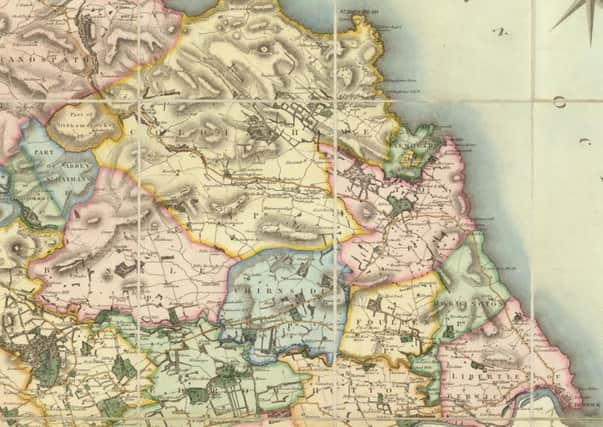Study to probe origins of ancient Scottish place names


Academics from the University of Glasgow have embarked on the three-year investigation into place names across Berwickshire, home to some of the oldest recorded examples in Scotland.
It is the first sustained attempt to investigate Anglo-Saxon place names in Scotland with the project to look at the Northumbrian dialect of Old English and its development into Older Scots.
Advertisement
Hide AdAdvertisement
Hide AdIt is believed that studying the names of settlements, hills and rivers across Berwickshire will give academics a greater insight into how the language evolved given there were few other influences on the way people spoke, such as from Viking settlements of Old Norse speakers.
Now, the village of Bemersyde is thought to have been named after bitterns and the parish of Cranshaws after crances - both once common birds flourishing in the Scottish countryside.
Wolf Cleugh is likely to be named after the woodland predator with the village of Womerlaw hailing not from the earth creature but the Old English man’s name Wulfmær.
Professor Carole Hough, principal investigator of the project, said: “Like Middle English, Older Scots is a descendant of Old English, but it is uncertain how far the differences reflect the respective varieties of Old English from which they derive, and how far they result from interaction with other languages, particularly Old Norse.
Advertisement
Hide AdAdvertisement
Hide Ad“With no evidence of major Norse settlement in the Borders, there is greater continuity of language from Old English to Scots here than elsewhere, so this is the best opportunity we have to establish which features of Scots derive from Old Northumbrian rather than from Old Norse.”
Funded by the Leverhulme Trust, the project will last for three years and focus on the six parishes of Coldstream, Eccles, Foulden, Hutton, Ladykirk and Mordington.
Dr Simon Taylor, co-investigator of the project, said: “Berwickshire’s place-names derive from a range of Celtic and Germanic languages including Brittonic, Gaelic, Old English and Old Norse; most later names are from Scots. As evidence of Scotland’s complex linguistic past they are of immense value.
“We aim to understand more fully not only the characteristics of the Old Northumbrian dialect, but to discover how Older Scots came to differ from northern Middle English. The project thus addresses one of the most important gaps in current knowledge of English historical linguistics – the earliest form of English spoken in Scotland.”
The project will publish the first of a series of academic volumes on Berwickshire place-names as part of the Survey of Scottish Place-Names.